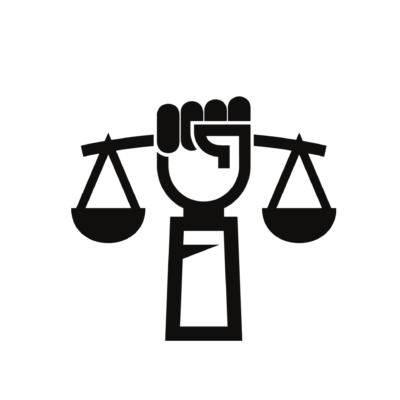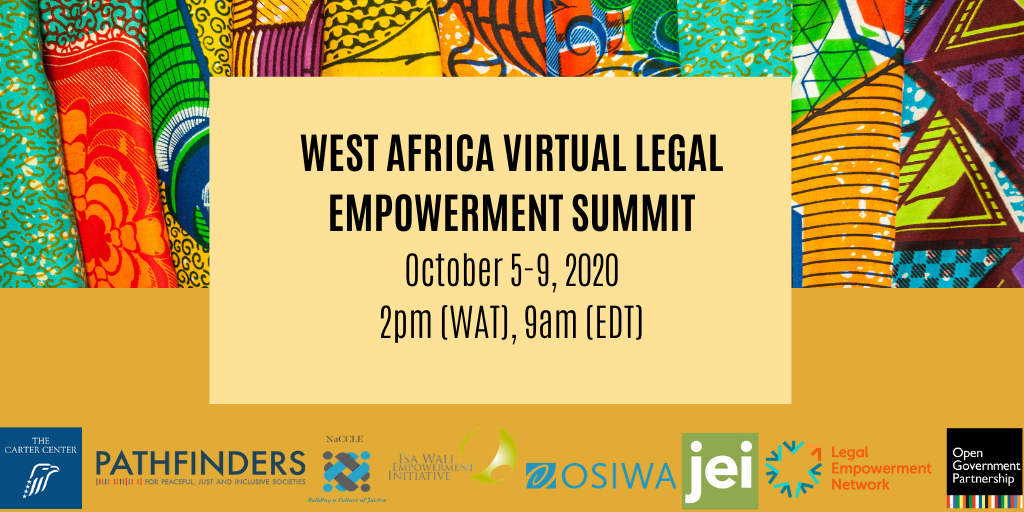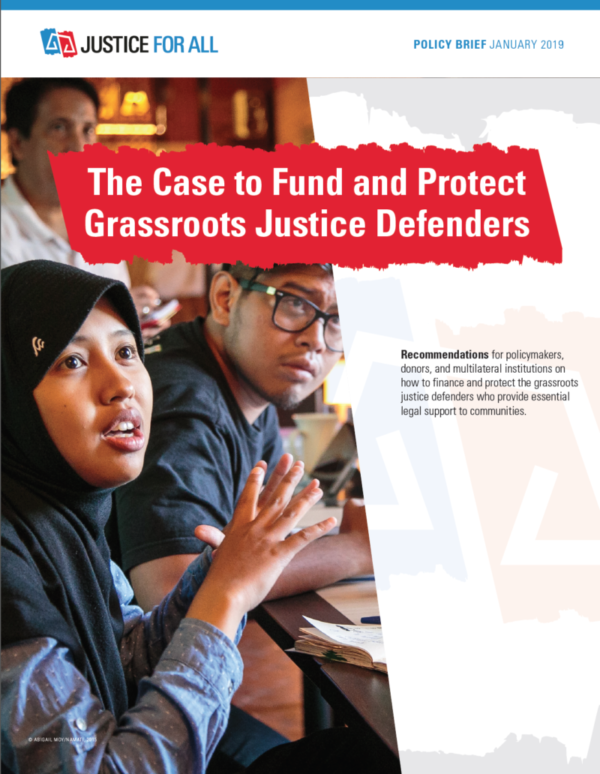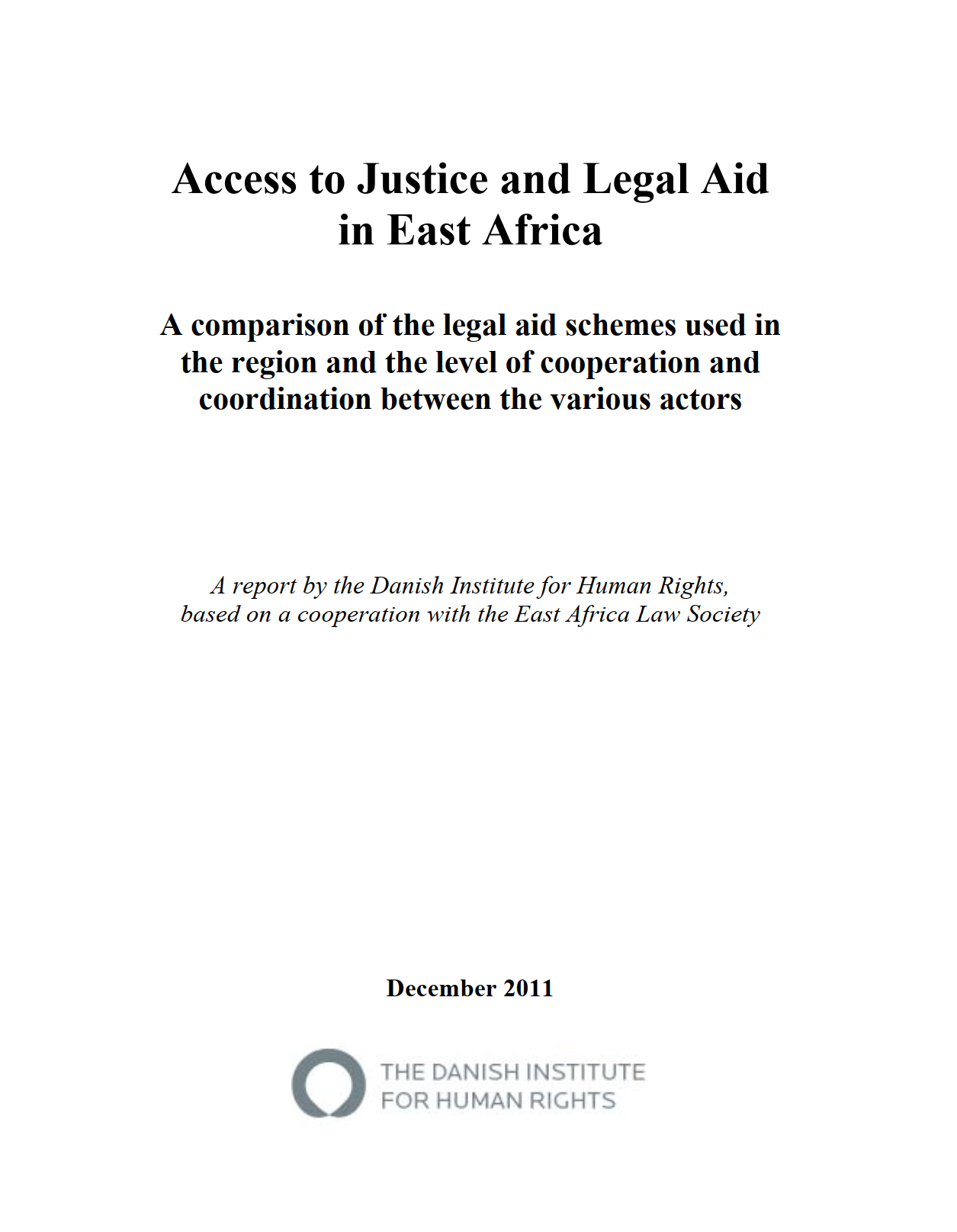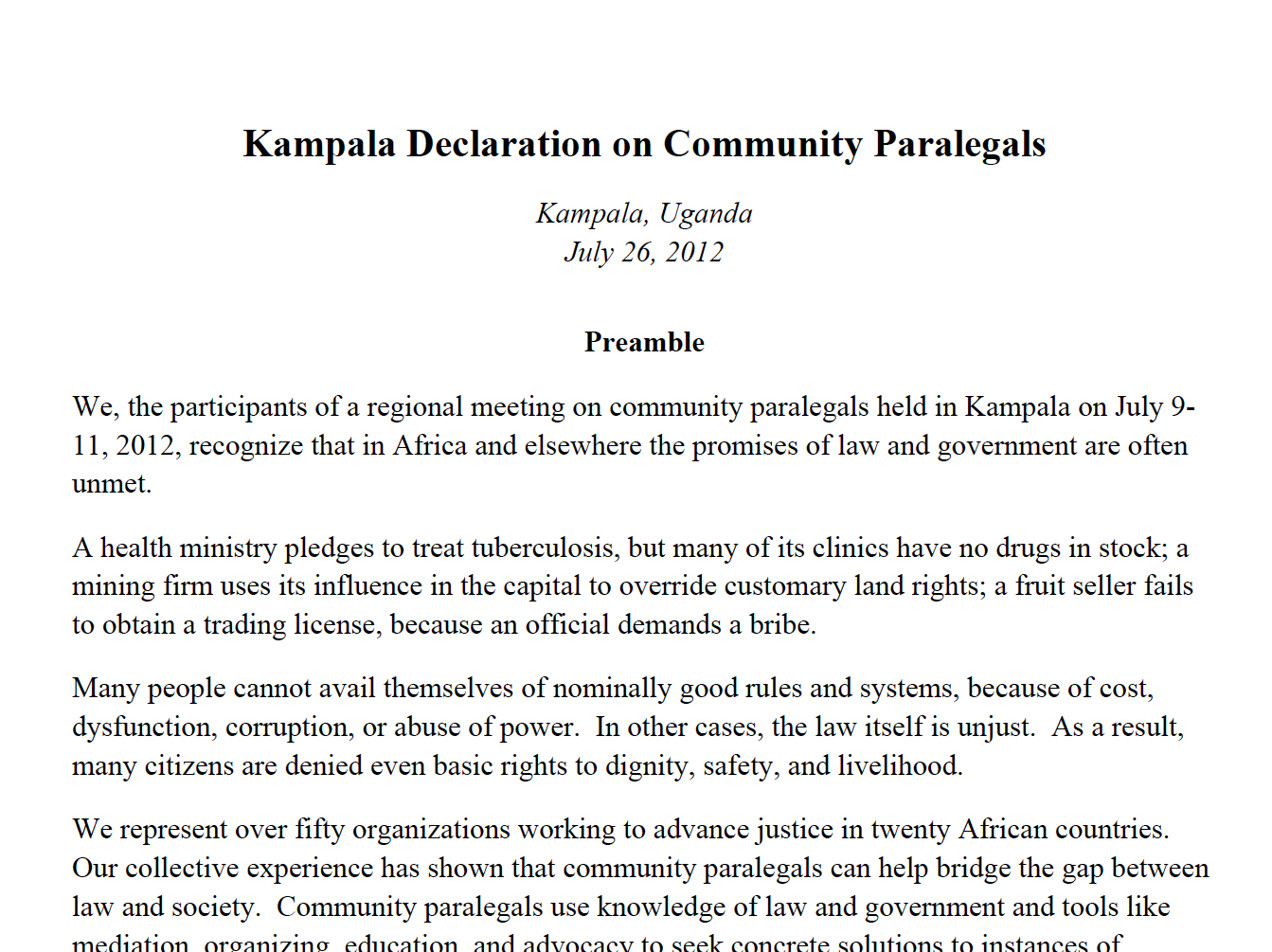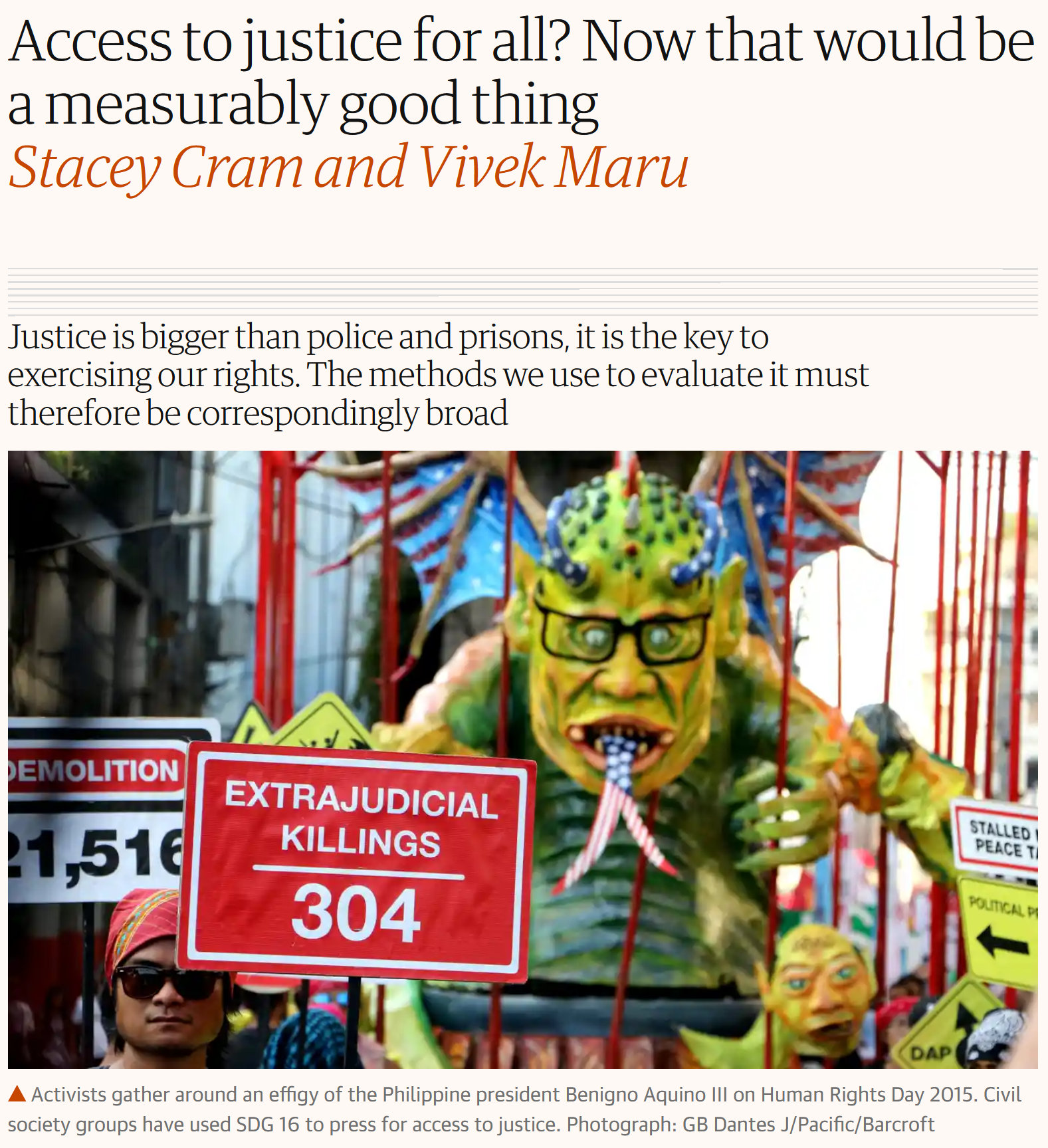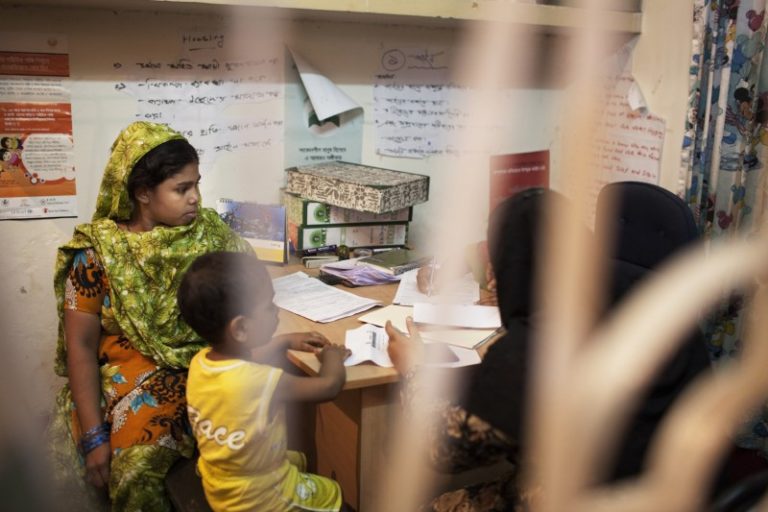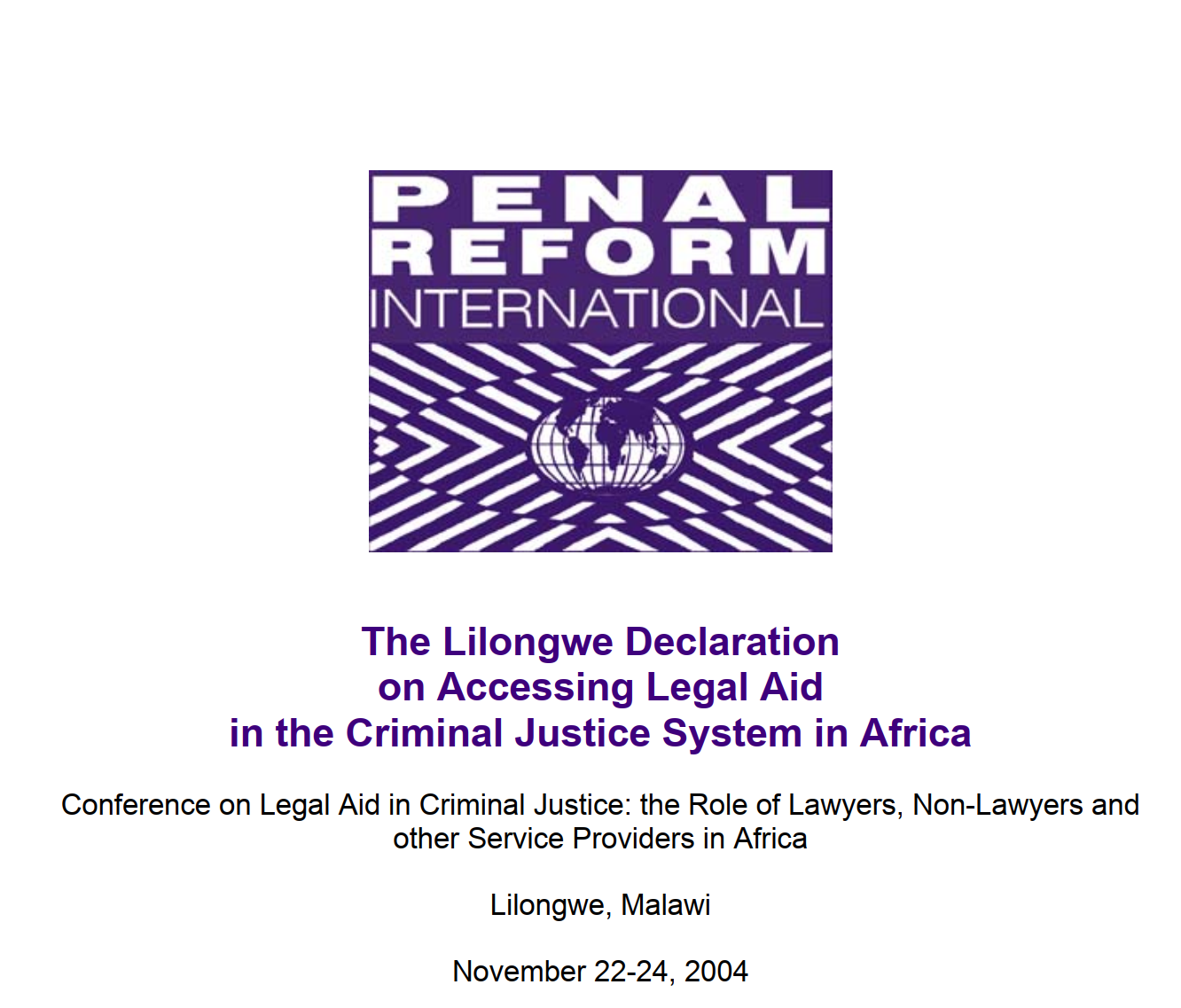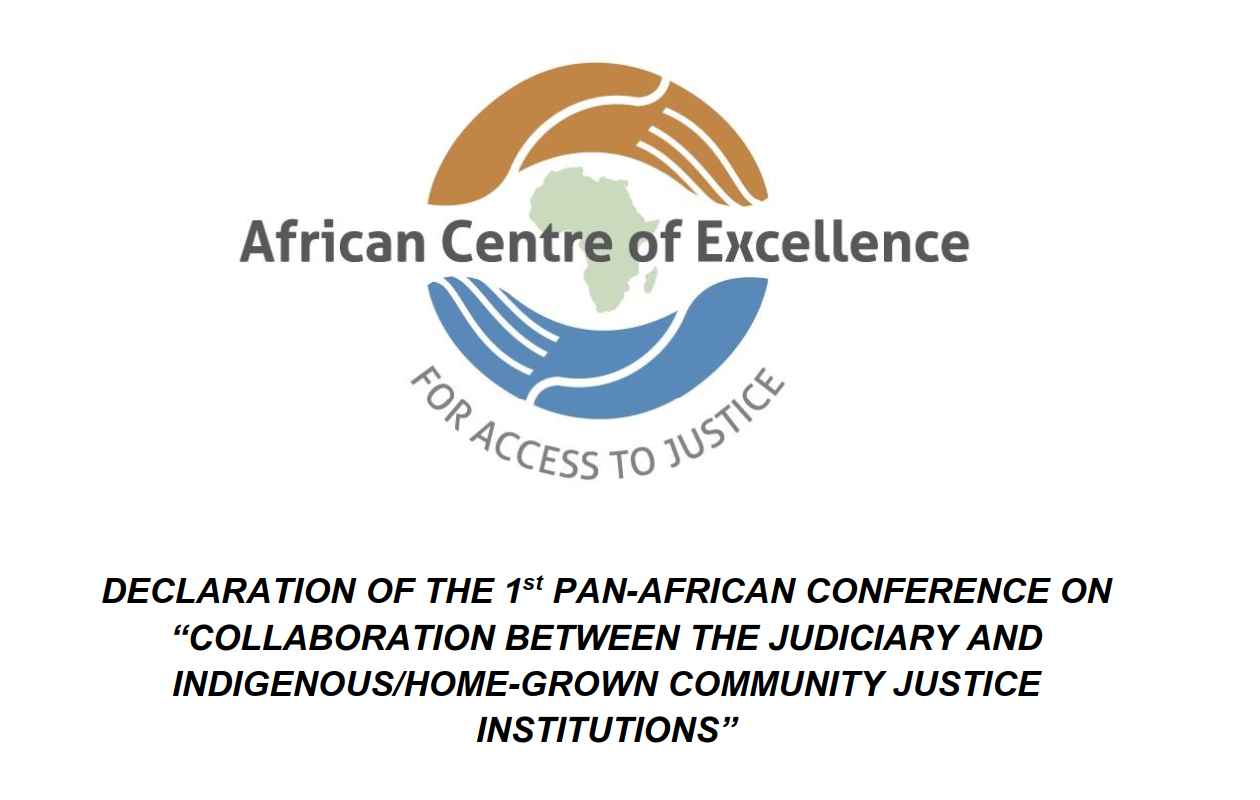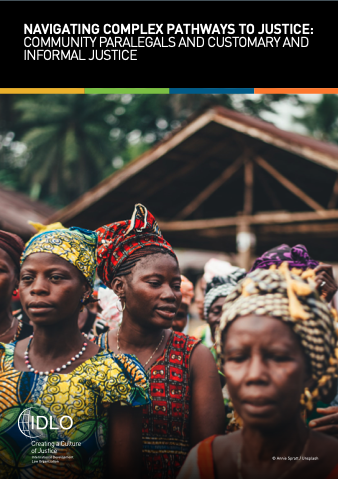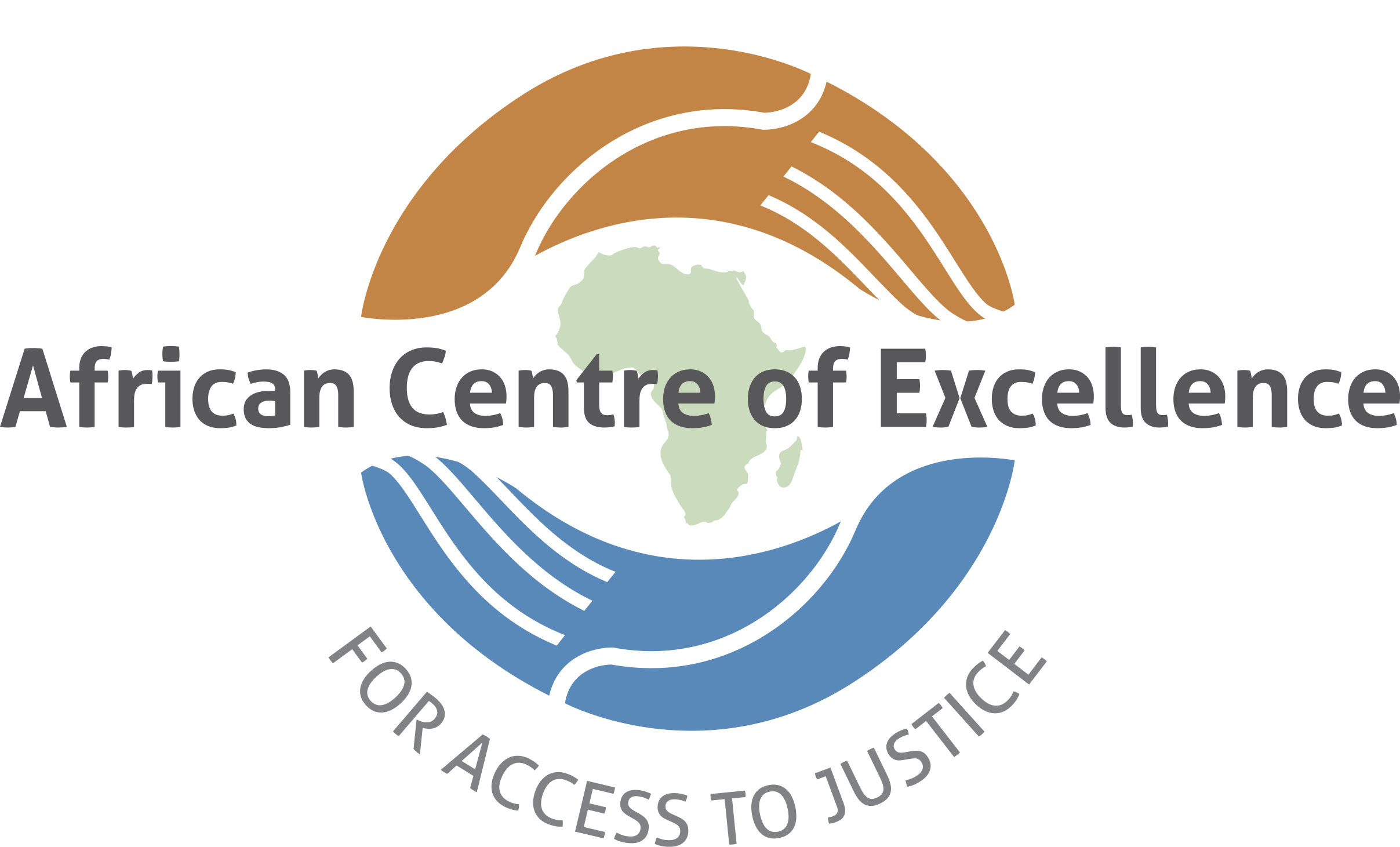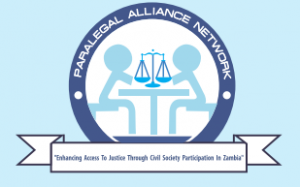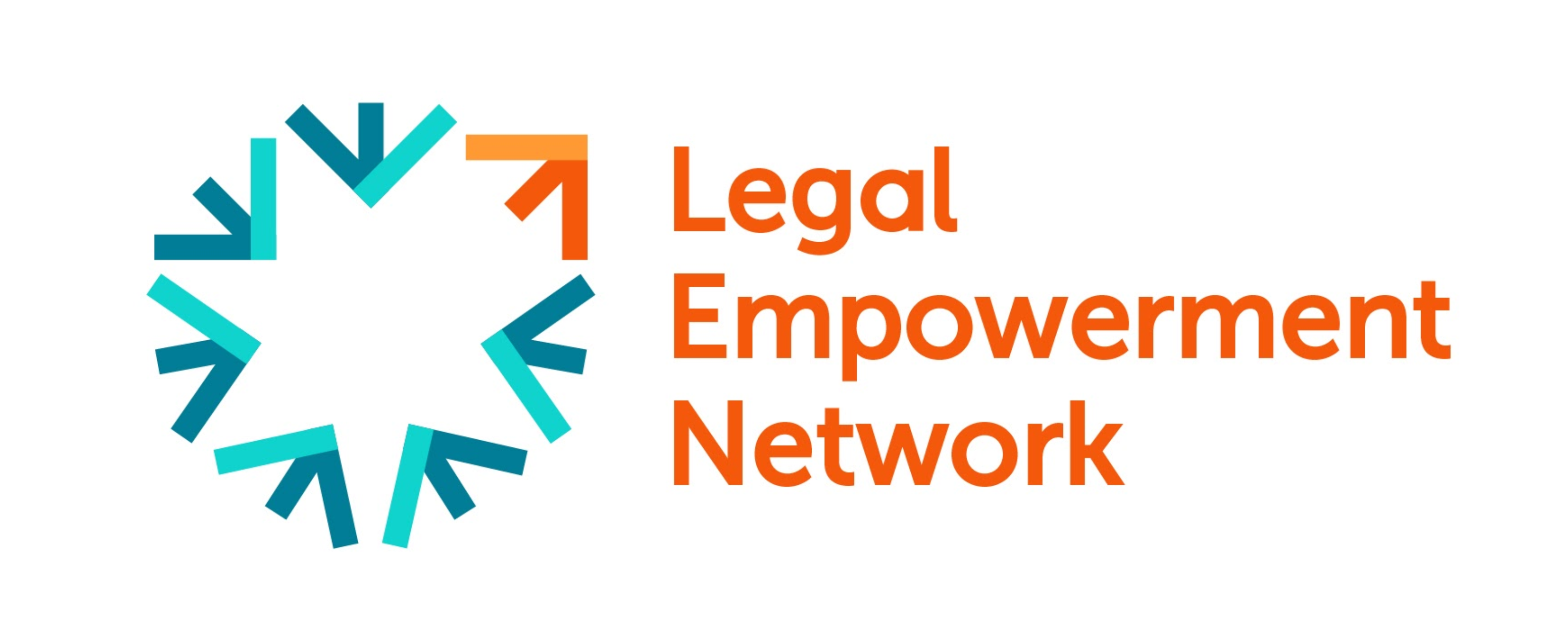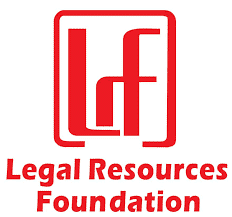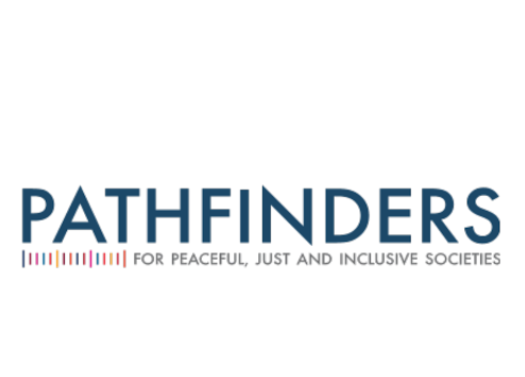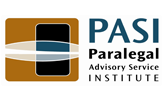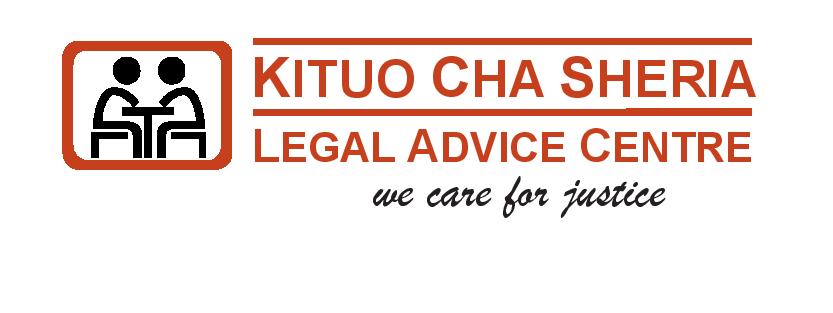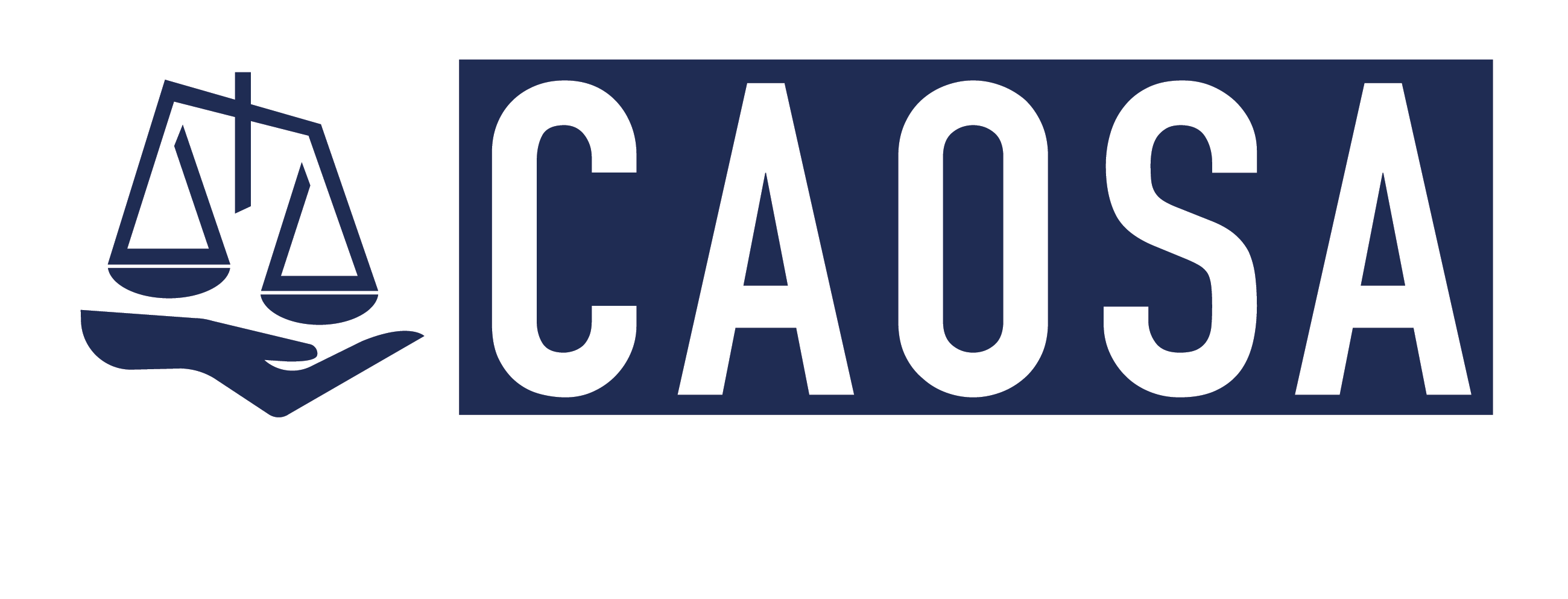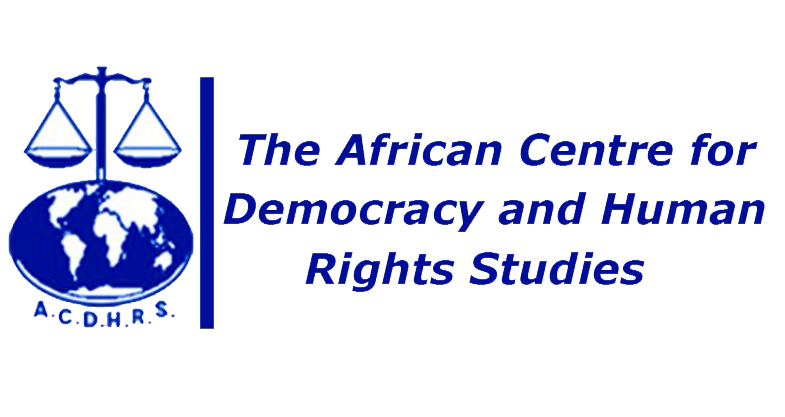PEOPLE-CENTERED JUSTICE IS KEY TO REALIZING THE AFRICA WE WANT
“Increase Financing and Recognition of Community-Based Paralegals”
November 12, 2021 – Virtual Convening
2PM GMT / 3PM WAT / 4PM SAST/CAT /5PM EAT
The African Union, through Agenda 2063, identifies justice as a key aspiration for member states. The AU 2063 agenda: The Africa We Want, is a shared strategic framework for inclusive growth and sustainable development. Aspiration 3 focuses on An Africa of good governance, democracy, respect for human rights, justice, and the rule of law. It aspires for Africa to have a universal culture of good governance, democratic values, gender equality, and respect for human rights, justice, and the rule of law.
Agenda 2063 to a great extent, is aligned to the Sustainable Development Goals (SDGs) which are designed to be a “blueprint to achieve a better and more sustainable future for all”. Of particular relevance is Aspiration 3. One of its enabling goals, Goal 11, and its priority areas, correlates significantly with SDG16, especially 16.3 and 16.5. as shown below:
The above correlation amplifies the commitment to access to justice, on the continental and the global level, of the member nations of the African Union who also belong to the United Nations.
Access to Justice in Africa
A significant amount of access to justice work is led by community-based paralegals who work directly with communities. They raise awareness of rights, laws, and policies; help clients to navigate legal and administrative processes in the pursuit of remedies; and support citizen engagement in law and policy reform. In many African countries, there is a low ratio of advocates to the general population. In addition, most lawyers are too expensive, too specialized, or too far away to serve the millions in need of assistance. A partnership between community-based paralegals and advocates helps to resolve the imbalance between the supply of, and demand for, legal services.
Nationally, member states of the AU such as Zambia, Sierra Leone, Tanzania, Kenya, South Africa, Rwanda, Nigeria among others enacted legislation that not only recognizes community-based paralegals as legal empowerment actors but also sees to it that the State provides adequate financing for the provision of legal aid services.
Despite solid frameworks and firm commitments made by member states to the African Union, the situation on the ground with respect to access to justice remains dismal. According to the FIRST CONTINENTAL REPORT ON THE IMPLEMENTATION OF AGENDA 2063, a weak performance score of 16% was registered on the continent’s efforts towards realizing its aspiration for good governance, democracy, respect for human rights, justice, and the rule of law, in light of the 2019 targets.
The majority of Africans are still unable to access justice due to a myriad of factors i.e. socio-economic, legal, and political. The cost of accessing formal justice is expensive.
To advance the access to people-centered justice dialogue, a group of local, national, and international CSOs have come together to organize a virtual meeting seeking to bring together paralegals and organizations that support paralegals from across Africa, AU representatives, policymakers, and State officials to continue a continent-wide conversation on how we can work together to support and bolster the important work of community-based paralegals.
The fact that the first 10-year plan of the AU 2063 agenda comes to an end in 2023 signals that this is an opportune time for this dialogue. The outcomes of this meeting can guide the implementation of Aspiration 3 for the next 10 years, with a focus on how we can collaborate to address the justice needs of everyday Africans. The SDG Summit also will take place in 2023 and, as the midpoint of Agenda 2030, is an opportune moment to take this discussion and its momentum forward and to make a case on the international level as well.
Two main challenges hinder this important work of justice: financing and legal recognition of community-based paralegals. It is critical that this multi-stakeholder meeting allows for an exchange of ideas and practices that support an enabling, efficient framework for community-based paralegals to thrive in Africa’s justice systems.
Objectives of the Discussion
- Create awareness of the AU 2063 agenda with a special focus on Aspiration 3:An Africa of good governance, democracy, respect for human rights, justice, and the rule of law.
- Advocate for increased financing and recognition of community-based paralegals
- Develop recommendations that will guide the implementation of people-centered justice in the next 10-year phase of Agenda 2063.
- Identify ways in which legal empowerment organizations can collaborate with the AU and State officials to increase support and funding for Aspiration 3.
- Strengthen the linkages between Aspiration 3 and SDG 16 to support advocacy on the global stage.
Outcomes
- Adoption of resolutions and recommendations from the session, which will be presented to the 69th session of the African Commission of People and Human Rights for consideration.
- A Joint Action Plan for the realization of Aspiration 3 and SDG 16 – with a specific focus on people-centered justice.
Format
A two-hour virtual panel discussion. Participants will include paralegals, representatives of legal empowerment, and paralegal support organizations from Africa. Representatives from the government, civil society, and the donor community will also participate in the session. The format will be interactive to enable a discussion between moderators and participants.

